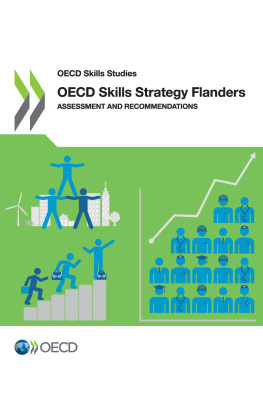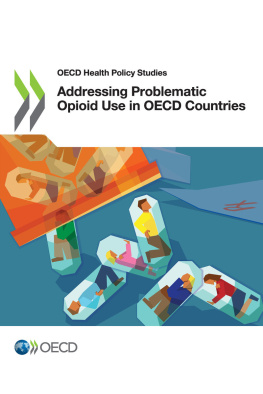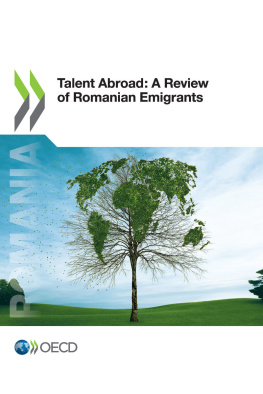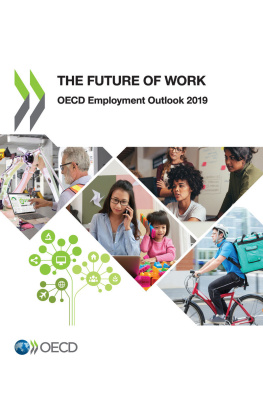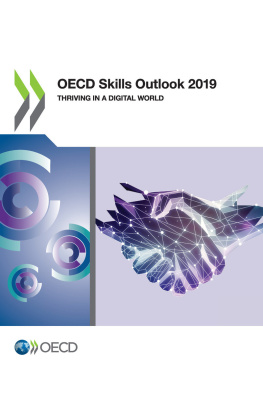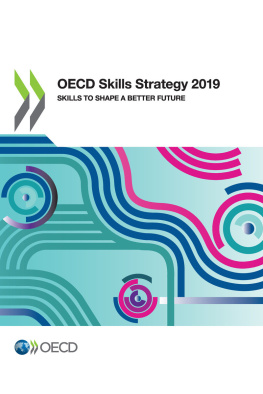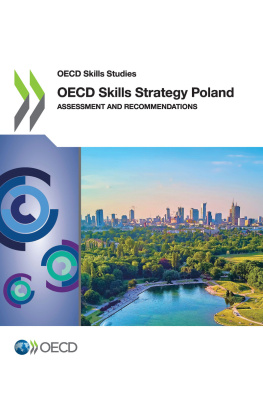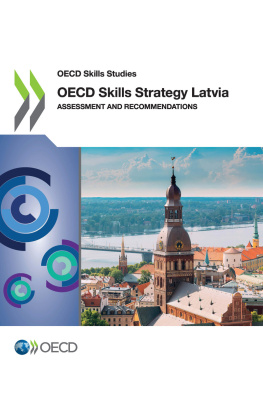OECD - Building an EU Talent Pool
Here you can read online OECD - Building an EU Talent Pool full text of the book (entire story) in english for free. Download pdf and epub, get meaning, cover and reviews about this ebook. year: 2019, publisher: OECD Publishing, genre: Home and family. Description of the work, (preface) as well as reviews are available. Best literature library LitArk.com created for fans of good reading and offers a wide selection of genres:
Romance novel
Science fiction
Adventure
Detective
Science
History
Home and family
Prose
Art
Politics
Computer
Non-fiction
Religion
Business
Children
Humor
Choose a favorite category and find really read worthwhile books. Enjoy immersion in the world of imagination, feel the emotions of the characters or learn something new for yourself, make an fascinating discovery.
- Book:Building an EU Talent Pool
- Author:
- Publisher:OECD Publishing
- Genre:
- Year:2019
- Rating:5 / 5
- Favourites:Add to favourites
- Your mark:
- 100
- 1
- 2
- 3
- 4
- 5
Building an EU Talent Pool: summary, description and annotation
We offer to read an annotation, description, summary or preface (depends on what the author of the book "Building an EU Talent Pool" wrote himself). If you haven't found the necessary information about the book — write in the comments, we will try to find it.
OECD: author's other books
Who wrote Building an EU Talent Pool? Find out the surname, the name of the author of the book and a list of all author's works by series.
Building an EU Talent Pool — read online for free the complete book (whole text) full work
Below is the text of the book, divided by pages. System saving the place of the last page read, allows you to conveniently read the book "Building an EU Talent Pool" online for free, without having to search again every time where you left off. Put a bookmark, and you can go to the page where you finished reading at any time.
Font size:
Interval:
Bookmark:
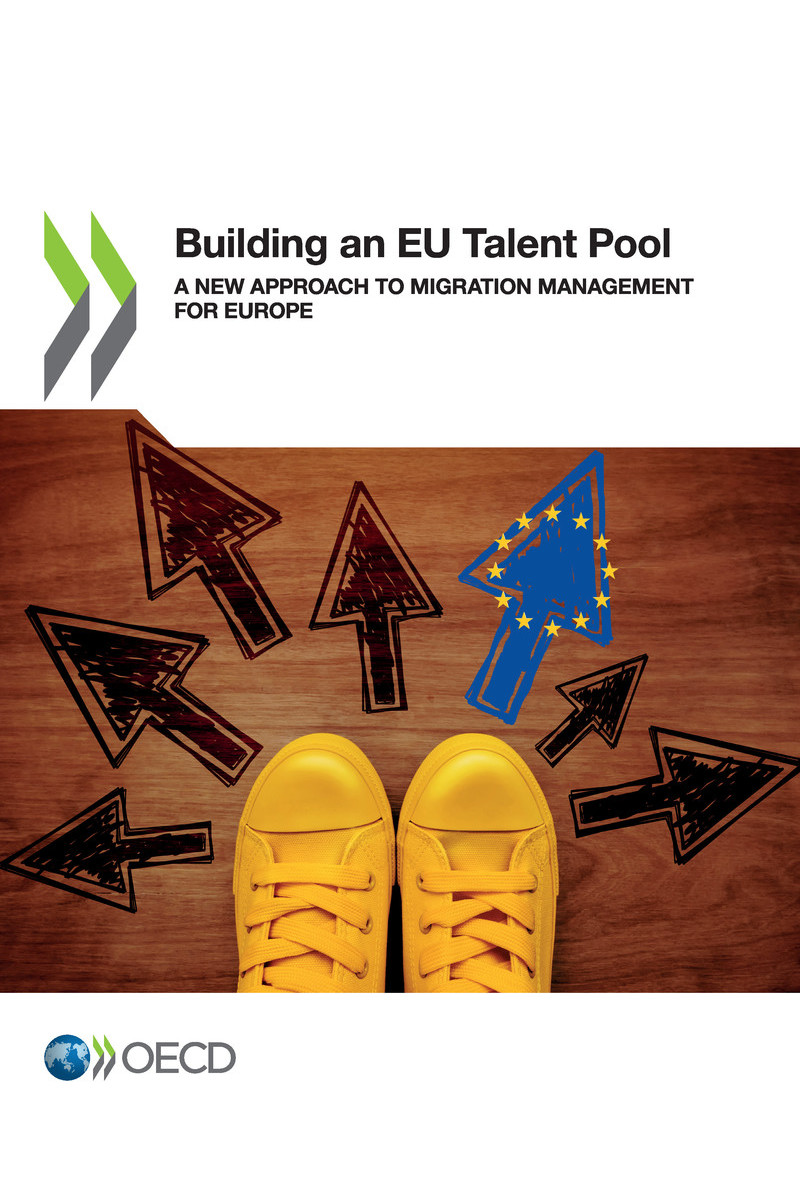
OECD (2019), Building an EU Talent Pool : A New Approach to Migration Management for Europe , OECD Publishing, Paris.
https://doi.org/10.1787/6ea982a0-en
The European Union is punching below its weight in the global competition for talent. According to the Database on Immigrants in OECD countries (DIOC), only one in four highly-educated migrants residing in the OECD in 2015-16 had chosen an EU destination, while almost two out of three had chosen to settle in North America or Oceania.
Todays policy barriers are not insurmountable for talented non-EU nationals with a job offer. Most high skilled individuals outside the EU can already meet admission requirements for the purpose of skilled employment in most Member States. Yet a fragmented migration system at the EU level has limited the potential for employers to draw on the wider EU Internal Market as a key factor of attractiveness for international talent. It isnt only the migration framework which is preventing skilled migration from helping to swiftly address unmet labour needs across the EU. Difficulties in international employment matching and in the recognition of foreign qualifications remain particularly stubborn obstacles.
In light of this, the 2015 European Agenda on Migration launched a process of assessment and review of the EU legal migration framework, including potential reform of the EU Blue Card. At the same time, the European Commission expanded its perspective to explore the potential for adapting elements of the Expression of Interest (EoI) system, used by New Zealand, Australia and Canada to manage skilled migration, to the European context.
The purpose of this report is to contribute to the ongoing reflections at the EU level on the extent to which an EU-wide version of the EoI system could be implemented in order to serve the collective needs of the EU Internal Market, while taking into account national prerogatives and needs in the area of legal migration.
The EoI model, as adopted in New Zealand, Australia and Canada, cannot be directly replicated EU-wide, due to both constitutional and contextual differences. While European institutions are increasingly committed to establish a common framework for the management of legal migration across the EU, Member States retain exclusive competence on permit issuance. Divergent national labour migration policies reflect uneven labour market situations and prospects across the EU. Further, immediate permanent residence as granted by most labour migration schemes currently using the EoI system is almost unknown in European national legislation, and not contemplated in the EU legal migration framework. Equally unknown are the backlogs of applications for highly skilled migration which drove the initial introduction of the EoI in settlement countries. Across the EU, labour migration systems have largely struggled to attract international talent.
Considering these constraints and contextual differences, the report suggests different ways in which EoI elements can support the EU legal migration framework for labour migration. It reviews the unaddressed needs in international employment matching across the EU and provides a comprehensive comparative analysis of the latest form of three existing EoI systems for selecting talent. This report also outlines possible scenarios for the adoption of an EU-wide EoI type of system.
The report addresses three main questions:
What obstacles make Europe unattractive for recruitment of skills from third countries to match unmet labour demand?
What features and elements of the EoI system could help address these obstacles?
What are the concrete options for adapting such elements at the EU-wide level?
It is hoped that this report will contribute to efforts to enhance the attractiveness of the Internal Market for highly sought-after international talent and boost its global competitiveness.
This report builds upon a series of reviews of labour migration policies and international employment matching practices in the EU and its Member States carried out by the OECD over the past decade.
This report was prepared under the project A Comparative Report on labour migration policies and the role of Expression of Interest models and matching mechanisms, with the support of the European Commission Directorate-General Migration and Home Affairs. This document was produced with the financial assistance of the European Union. The views expressed herein can in no way be taken to reflect the official opinion of the European Union.
This report was written by Martina Belmonte, Jonathan Chaloff, Maria Vincenza Desiderio, and Friedrich Poeschel. The OECD Secretariat would like to thank Laura Corrado of the Directorate-General (DG) Migration and Home Affairs of the European Commission and her colleagues, especially Laurent Aujean, Helene Calers, Nuria Diez-Guardia and Agnese Papadia, who commented on and contributed to revising this report. The report benefited from valuable comments from Jean-Christophe Dumont, Stefano Scarpetta, and Mark Pearson. Delegates to the OECD Working Party on Migration in June 2017 and June 2018 discussed and commented on previous versions of these chapters. Further comments from participants in a technical workshop held in September 2017, a meeting of the European Expert Group on Economic Migration in November 2017 and a presentation at the European Commission in June 2018 also contributed to the report.
Font size:
Interval:
Bookmark:
Similar books «Building an EU Talent Pool»
Look at similar books to Building an EU Talent Pool. We have selected literature similar in name and meaning in the hope of providing readers with more options to find new, interesting, not yet read works.
Discussion, reviews of the book Building an EU Talent Pool and just readers' own opinions. Leave your comments, write what you think about the work, its meaning or the main characters. Specify what exactly you liked and what you didn't like, and why you think so.








